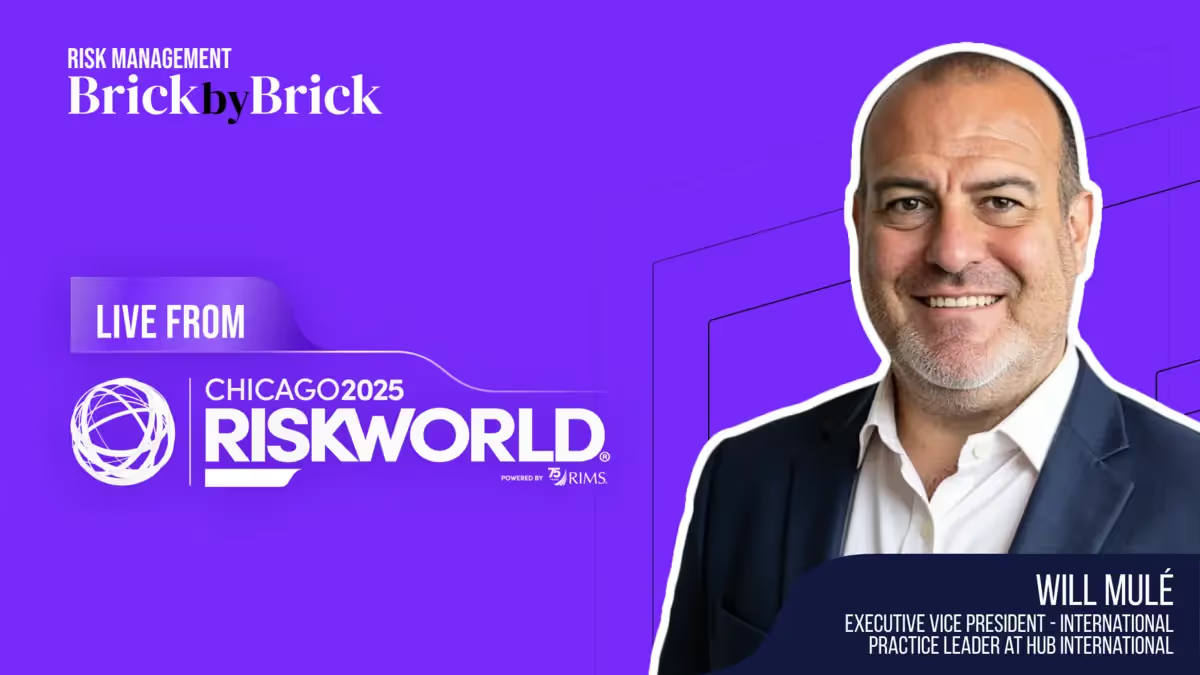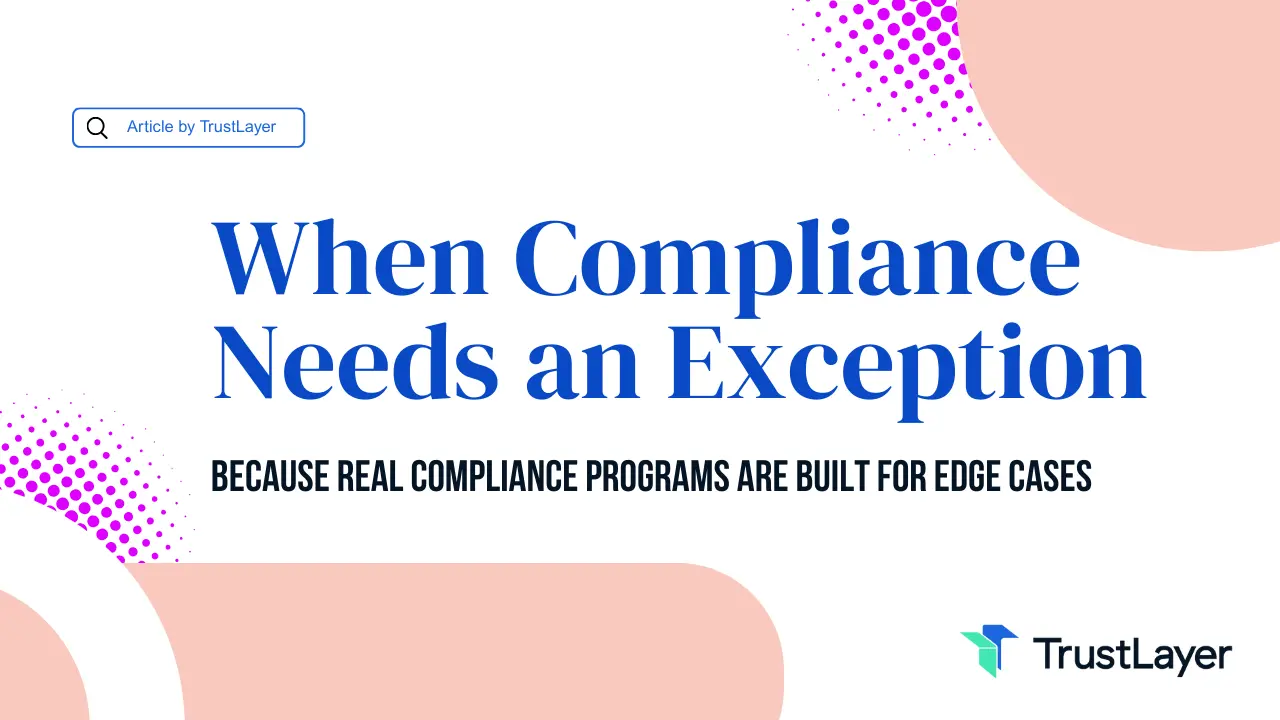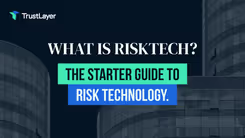Why Your Global Risk Program Needs to Swerve Now with Will Mulé

In a recent episode of Brick by Brick, host Jason Reichl sits down with Will Mulé, Global Solutions Practice Leader at Hub, for a masterclass in global risk management that could transform how your organization approaches international coverage. From his unique perspective spanning three continents to his innovative "Protect and Swerve" philosophy, Will reveals why traditional global insurance programs are failing in today's volatile environment and what companies must do to stay ahead of emerging threats.
To find out how TrustLayer manages risk so that people can build the physical world around us, head to TrustLayer.io.
The End of "Set It and Forget It" Global Programs
Will opens with a reality check that should reshape how every risk manager thinks about global coverage: "Global, as I said, is very fluid. So what may be good right now may not be in two, three, four months, or even a year's time."
Gone are the days of annual renewals that remain static for twelve months. Today's successful risk managers must embrace constant evolution of client processes, risk management philosophies, and policy structures. The "Protect and Swerve" approach recognizes that business operations face different challenges depending on where they operate globally, requiring the flexibility to change direction when circumstances shift.
This isn't just about being reactive—it's about building fluidity into your risk management approach so you can protect clients fully while maintaining the ability to pivot when emerging risks demand different strategies.
The Geopolitical Risk Revolution
When asked about the major global risks reshaping the landscape, Will doesn't hesitate: "I think most of our clients right now, obviously, geopolitical risk is the biggest topic. It has been for a while. I think it was in Insurance Journal late last year: 30% of business leaders consider that to be their biggest risk."
But geopolitical risk isn't just about understanding political tensions—it's fundamentally changing how companies structure their coverage. Traditional blanket global policies are giving way to more sophisticated approaches, particularly in cybersecurity where individual policies in certain countries are emerging for higher-risk scenarios.
The shift reflects a broader truth: what worked when the world seemed more stable no longer provides adequate protection in an era of constant volatility and emerging threats.
Cultural Intelligence as Risk Management Strategy
Perhaps Will's most practical insight centers on the critical importance of cultural intelligence in global risk programs. "Just be mindful of everyone's culture," he emphasizes, sharing how communication styles can dramatically impact international business relationships.
His example resonates: an email from an Asian colleague might seem direct or even rude to American standards, but that's simply their business culture. Understanding these differences isn't just about better relationships—it's about building risk programs that work across diverse cultural contexts.
This cultural awareness becomes crucial when structuring coverage. American companies typically prefer high deductibles and significant risk retention, while Asian operations often require almost "ground up" coverage due to both cultural preferences and contractual requirements. Will's solution? Local "infill" policies that bridge the gap between global program structures and regional comfort levels.
The AI Liability Transformation
Will provides a compelling example of how emerging technologies are fundamentally shifting risk profiles using autonomous vehicles. "So automotive manufacturers' biggest risk was always automotive liability—physical risk. Now, when you're putting driverless vehicles in the car, cyber's much more prominent because if something's going to go wrong, is it the driver's fault? Probably not if it's driverless."
This shift from physical to cyber and product liability represents a broader transformation across industries. As AI becomes more integrated into business operations, traditional risk categories are blending and evolving, requiring risk managers to think beyond historical models and prepare for hybrid risk scenarios that didn't exist just years ago.
Strategic Partnership Selection
Throughout the conversation, Sridhar emphasizes the importance of working with Not all insurance relationships are created equal, and Will emphasizes the critical importance of choosing partners who can scale with your global growth. "There's nothing worse than saying, 'This is a great policy for you, but if you're in more than three or four countries, we can't help you,'" he explains.
The key lies in understanding your client's business trajectory and matching them with carriers and partners who have both global capability and appetite for growth. This requires brokers to move beyond reactive service to proactive strategic planning, anticipating where clients are headed and ensuring their risk partners can support that journey.
The People-Tracking Imperative
Will delivers perhaps his most sobering insight about a fundamental requirement many companies overlook: "If you don't know where your people are at any one time, there's a problem." In an era of geopolitical volatility and global mobility, this isn't just HR management—it's critical risk control.
Companies need systems and procedures that provide real-time visibility into employee locations, particularly when major events occur. The delay caused by scrambling to locate personnel during a crisis could be the difference between an effective response and catastrophic outcomes.
Final Thoughts
Will's journey from accidentally applying to Marsh instead of the Maersk shipping company illustrates the unexpected paths that lead to insurance success. But his insights reveal something deeper: global risk management has evolved from simple coverage placement to sophisticated cultural intelligence, technological adaptation, and strategic partnership development.
The companies that will thrive are those that embrace the "Protect and Swerve" philosophy—building protection strategies flexible enough to adapt as global conditions shift, while maintaining the cultural intelligence and technological awareness necessary to operate effectively across diverse markets and emerging risk scenarios.
To hear more strategic insights from someone who's spent decades helping companies rethink their approach to risk financing, tune in to this episode of Risk Management: Brick by Brick.
👉 Spotify: https://bit.ly/4651Re7
👉 Apple Podcasts: https://apple.co/4lXZWhm
👉 YouTube: https://youtu.be/DQHISbQBcrE
Podcast Host: Jason Reichl
Executive Producer: Don Halliwell
















